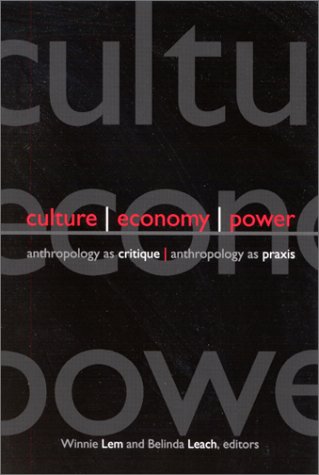

Most ebook files are in PDF format, so you can easily read them using various software such as Foxit Reader or directly on the Google Chrome browser.
Some ebook files are released by publishers in other formats such as .awz, .mobi, .epub, .fb2, etc. You may need to install specific software to read these formats on mobile/PC, such as Calibre.
Please read the tutorial at this link: https://ebookbell.com/faq
We offer FREE conversion to the popular formats you request; however, this may take some time. Therefore, right after payment, please email us, and we will try to provide the service as quickly as possible.
For some exceptional file formats or broken links (if any), please refrain from opening any disputes. Instead, email us first, and we will try to assist within a maximum of 6 hours.
EbookBell Team

4.8
34 reviews
ISBN 13: 9780791452905
Author: Winnie Lem
Confronts major questions facing anthropology, Marxist theory, cultural studies, feminism, and history. Grounded in a conviction that anthropological knowledge implies critique and that engaging in anthropology is also ultimately an act of praxis, various contributors explore the ways in which the precepts of Marxism continue to illuminate and enhance our understanding of culture, economy, and politics. They focus on the question of epistemology to examine the process of anthropological intellectual production in different national settings and analyze the ways in which hierarchies of power and forms of state domination figure in the formation of subjectivities in different ethnographic contexts. The authors also reflect upon how class, gender, ethnicity, racialized forms of ethnicity, as well as regional and national identities, are configured through the relationships involved in making a living under late capitalism.
1. Introduction by Winnie Lem and Belinda Leach
PART 1: Nations and Knowledge
2. Bicentrism, Culture, and the Political Economy of Sociocultural Anthropology in English Canada by
3. The Political Economy of Political Economy in Spanish Anthropology by Susana Narotzky
4. Anthropological Debates and the Crisis of Mexican Nationalism by Guillermo de la Peña
5. Political Economy in the United States by William Roseberry
6. “A Small Discipline”: The Embattled Place of Anthropology in a Massified British Higher Educa
PART 2: States and Subjects
7. Sentiment and Structure: Nation and State by Dipankar Gupta
8. Communists Communists Everywhere!: Forgetting the Past and Living with History in Ecuador by Stev
9. “We Were the Strongest Ones Here”: Transformed Livelihoods in Contemporary Spain by Claudia V
10. The Italian Post-Communist Left and Unemployment: Finding a New Position on Labor by Michael Bli
11. The Language of Contention in Liberal Ecuador by A. Kim Clark
PART 3: Hegemonies and Histories
12. The Decline of Patriarchy? The Political Economy of Patriarchy: Maquiladoras in Yucatan, Mexico
13. Remembering “The Ancient Ones”: Memory, Hegemony, and the Shadows of State Terror in the Arg
14. Class, Discipline, and the Politics of Opposition in Ontario by Belinda Leach
15. Militant Particularism and Cultural Struggles as Cape Breton Burns Again by Pauline Gardiner Bar
16. Acquiescence and Quiescence Gender and Politics in Rural Languedoc by Winnie Lem
17. Red Flags and Lace Coiffes Identity, Livelihood, and the Politics of Survival in the Bigoudennie
18. Out of Site: The Horizons of Collective Identity by Gavin Smith
a geography of heritage power culture and economy
k-culture power
power culture
cultural power example
culture power house
power vs culture
Tags: Winnie Lem, Culture, Anthropology